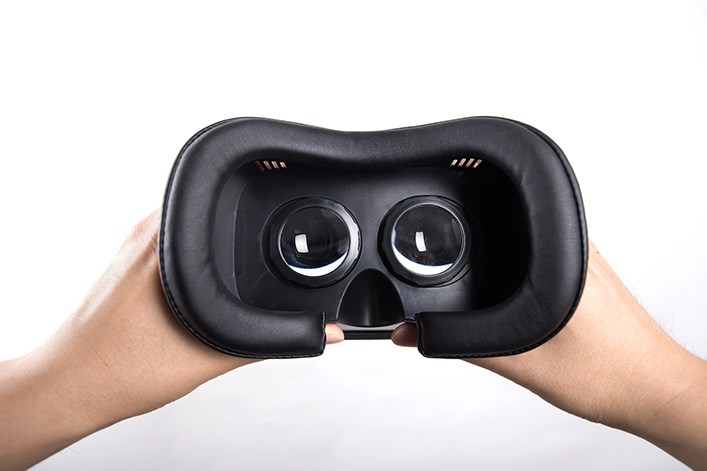Aspiring education assistants in the Burnaby school district’s new EA training course will get to practise dealing with problem student behaviour before even stepping into a classroom thanks to virtual reality software the district is developing.
The EA course was designed to address a shortage of education assistants in the province and will launch this fall through the district’s adult and continuing education division.
The first cohort will start in July and learn a range of skills, including how to deal with challenging student behaviour.
With software the district hopes to have ready by then, prospective EAs will get to encounter a range of student behaviours by putting on a virtual reality headset and working through different scenarios.
“In a sense, it’s kind of like a choose-your-own-adventure. Their decisions will either exacerbate the problem or mitigate it,” said Ryan Konarski, one of two district behaviour analysts (the other is Nadine Trottier) coming up with scenarios for the program.
As far as district officials know, this is the first time virtual reality technology will be used to help train EAs, but the concept is similar to software being used in the U.S. to help train doctors to deal with difficult patient behaviour, according to director of instruction Kevin Brandt.
“It’s safe because it’s just in virtual reality,” he said, “but you’re able to then make decisions.”
While the EA scenarios will be situations Konarski and Trottier have encountered firsthand during their years of work, Konarski said the focus will be on learning to prevent or deescalate problem behaviours by learning to recognize why they’re happening.
To that end, student EAs won’t be putting on their headsets to be confronted by a student in distress.
Rather, the scenes will show small escalations, like a student raising his voice, fidgeting or pushing away working materials, according to Konarski.
“It might look like them finally standing up and walking away,” he said.
Aspiring EAs will decide how to respond to each 10- to 20-second vignette, and the process will involve discussion before and after the process.
While Konarski and Trottier are providing the scenarios, the program is being scripted, directed and edited by Alpha Secondary teacher Elixa Neumann.
The project is getting programming support from SFU PhD student Abraham Hashemian and technical support from UBC engineering professor Matt Yedlin.
When it’s ready to go, Konarski said it will beat the paper and pencil case studies he learned from when he was at school.
“Beyond the cool factor, I think the technology does allow for an approximation of a rich condensed training experience that really cannot be replicated in a natural environment,” he said.
More than 100 would-be education assistants applied for the district’s new, in-house EA training program; 30 will be picked for the first cohort, which will attend full time from the beginning of July until the end of November.
A second version of the program with classes on evenings and weeks will start in January 2019 and run until December 2019.



